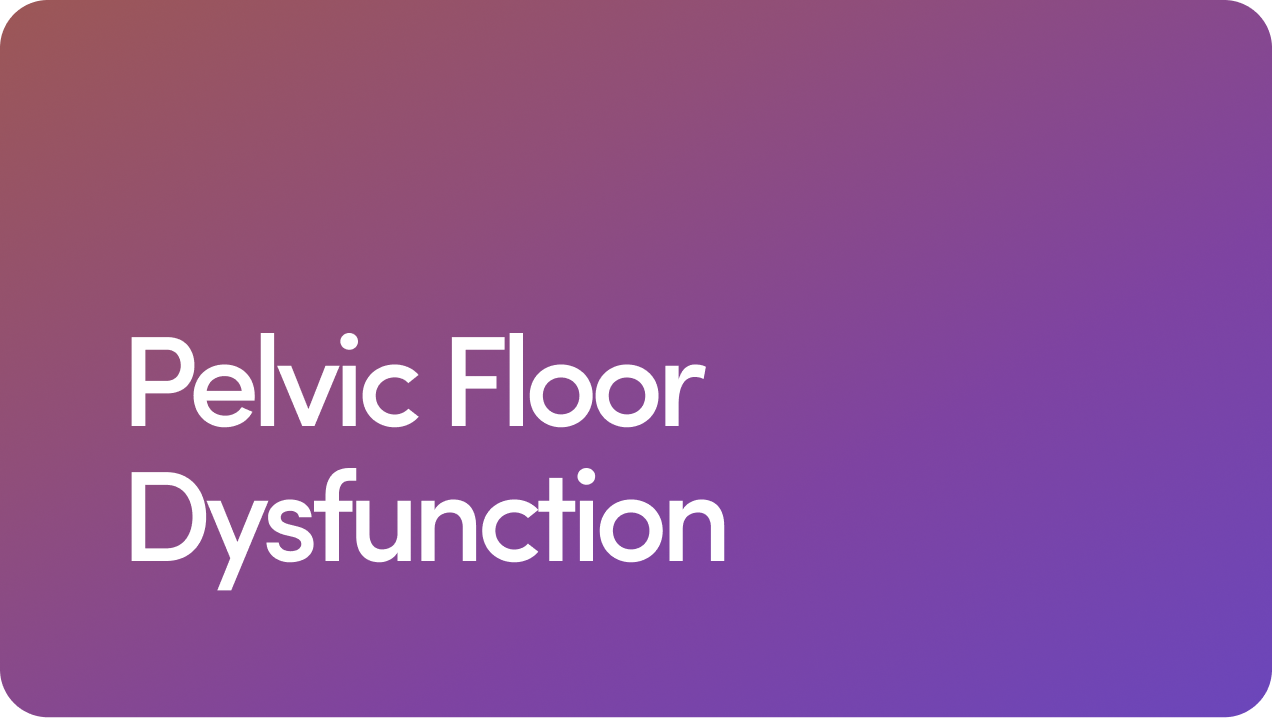Content
Enjoy sex like you used to
Xanax Side Effects Sexually

According to the National Institute of Mental Health, around 30 percent of U.S. adults experience an anxiety disorder at some time in their lives.
Doctors commonly prescribe Xanax® (alprazolam) for anxiety and panic disorders, but like any medication, Xanax comes with potential side effects, including sexual side effects.
Though Xanax has become a household name for its calming effect, we’re here to break down how this popular medication could curb your libido. And what you can do about Xanax side effects, sexually speaking.
Content
What Is Xanax?
Xanax is the brand name for alprazolam. Healthcare professionals prescribe it to help people manage symptoms of anxiety disorder and panic disorders, usually as a short-term treatment.
It’s part of a class of medications called benzodiazepines. This class of drugs also includes diazepam (generic Valium®) and lorazepam (Ativan®).
Benzodiazepines are instant anxiety relief medications because the body quickly absorbs them, allowing them to get right to work. Xanax starts working almost immediately and reaches peak concentration within one to two hours.
How Does Xanax Work?
Xanax works as an anxiety medication by amplifying the effects of the brain chemical gamma-aminobutyric acid (GABA) to relax muscles, promote sedation, and alleviate irrational fears.
The result? A sense of calm when you’re struggling with anxiousness or similar emotions that can disrupt your life.
For this reason, many people assume they could benefit from Xanax for sleep.
But Xanax can actually reduce the amount of deep, restorative shut-eye you get. It also comes with a risk of addiction or tolerance, which can make it difficult to doze off without it. (Certain other benzodiazepines may be a better fit for treating insomnia.)
Participants in a 1987 study showed some sleep improvements with alprazolam. But after just one week, researchers found the medication’s effectiveness had dropped by about 40 percent. They also observed that after stopping the medication, many participants experienced worse sleep than before, with sleep difficulties increasing within just three nights.
When used as directed, Xanax can be an effective treatment for anxiety and panic disorders — but it does come with its share of potential side effects, some of them sexual.
Xanax Sexual Side Effects
Xanax works directly on your brain and can impact your sex life in ways you may not appreciate.
The main reason is that it triggers the release of GABA neurotransmitters to reduce brain excitability. This causes drowsiness and sedation, making you feel less energetic and more relaxed.
When you’re sedated and “feeling heavy”, it’s not uncommon for sex drive to decline or to experience other obstacles in the bedroom when Xanax is in the mix.
Sexual dysfunction isn't a common side effect of Xanax. But, some smaller studies suggest that sexual problems can happen when taking this medication.
Does Xanax Cause Erectile Dysfunction?
Direct data on Xanax and certain sexual side effects like erectile dysfunction (ED) are limited. But we know some men have experienced them. In trials testing Xanax for panic disorder, 7.4 percent of participants reported sexual dysfunction as a side effect.
Besides that, some of the possible sexual side effects among men using Xanax, mentioned in this 2018 case analysis and this 2021 review, include:
Erectile dysfunction (ED), the inability to achieve or maintain an erection during sex
Anorgasmia, the inability to achieve orgasm during sex or masturbation
Delayed ejaculation, meaning it takes longer than normal to reach orgasm
Low libido, also known as reduced sex drive
Not everyone will experience every possible side effect of a drug, but it’s good to be aware of what has been reported. It's important to note that participants in studies involving Xanax and other benzodiazepines often have mental health conditions like anxiety and depression, which can affect libido and sexual function.
The bottom line here: Xanax may lead to a decline in sexual functioning because it depresses the central nervous system (CNS). Still, more research is needed to better understand how Xanax impacts sexual function.
Does Xanax Make You Horny?
Though Xanax is more likely to cause low libido, there are some reports of the opposite happening.
In clinical trials, though 14 percent of Xanax users with panic disorder reported decreased libido, 8 percent reported an increased libido.
One possible reason for an increased libido while using Xanax is that the drug helps reduce sexual performance anxiety or general anxiety, which can, in turn, boost your sex drive.
If you struggle with sexual performance anxiety, you may be unable to get or maintain an erection long enough to have satisfying sex. Reducing this anxiety may turn things around, but more studies are needed to prove this theory.
Other Serious Side Effects of Using Xanax
Let’s break down a few other Xanax side effects you should be aware of.
Medication Interactions
Xanax doesn’t mix well with some other medications, including other benzodiazepines or opioid drugs.
Mixing drugs increases your risk of severe drowsiness and respiratory depression — when your lungs fail to exchange carbon dioxide and oxygen efficiently, leading to carbon dioxide accumulation.
Taking Xanax with similar drugs can lead to a coma or even be fatal.
Potential for Dependence
Xanax also has an addictive potential, especially if you use it longer than recommended by your doctor. The package insert for Xanax warns that physical dependence on Xanax can lead to serious side effects, including withdrawal symptoms like seizures. Even with short-term use at prescribed doses (0.75 to 4.0 mg per day for anxiety), there is still a risk of dependence.
And there’s a high risk of misuse with Xanax, especially if you have a history of substance use disorder or alcohol use disorder.
If you have a personal history of addictive behaviors, don’t be afraid to disclose this to your healthcare provider when discussing anxiety medication. Xanax may not be right for you, but your provider can suggest another option.
Withdrawal Symptoms
Even if you use benzodiazepines like Xanax as prescribed, you can experience physical dependence and (potentially life-threatening) withdrawal symptoms if you abruptly stop taking them.
Always follow your doctor’s directions, and reach out to your provider if you have questions about safely tapering off Xanax.
Experiencing sex life issues since starting Xanax? Here are several steps you can take to solve the problem.
Talk to Your Healthcare Provider
We get it. It’s awkward talking to anyone about performance problems — let alone a medical professional.
But just like anything else, the first step in alleviating Xanax-related sexual side effects is telling someone there’s a problem in the first place. (Remember, Xanax isn’t a drug you want to stop suddenly without an appropriate tapering plan).
What you’re experiencing could be temporary, but you won’t know until you have that conversation with a healthcare professional.
Lower Your Dose
The typical Xanax starting dosage for anxiety is 0.25 to 0.5 milligrams (mg) three times daily. It might be increased over a few days to a maximum daily dose of 4 milligrams, taken in divided doses.
A higher dose could result in more severe side effects, including sexual function issues. So lowering your dose might reduce sexual side effects for some.
But don’t adjust your dosage on your own without medical supervision. You shouldn’t decrease the daily dosage of Xanax by more than 0.5 milligrams every three days, and some people may require a slower taper.
Take Xanax Less Frequently
You might also consider using Xanax on a less frequent basis after discussing it with your healthcare provider.
Your healthcare provider can help you determine whether you need to take it as often as you currently are or if you decrease how often you’re taking it. This may help alleviate some of the sexual side effects you’re experiencing.
Switch to Another Medication
Other medications can be just as effective for managing anxiety and panic disorders.
If Xanax isn’t a fit for you, your provider may prescribe a different benzodiazepine or another drug class to address your symptoms.
Take ED Medications
If Xanax remains the best option for you, improving your sexual performance might be as simple as adding an ED medication to your regimen.
There’s not a ton of evidence on Xanax erectile dysfunction, but that doesn’t mean plenty of men aren’t experiencing it. Trouble achieving or maintaining an erection is a complaint among many guys who use Xanax.
The gold standard of ED medications is PDE5 inhibitors. They work by interfering with the activity of phosphodiesterase 5 (PDE5), an enzyme that controls how much blood flows to the penis when you’re aroused.
Ultimately, PDE5 inhibitors increase blood flow to your penis and help you to get and stay hard during sex. Common PDE5s include:
Viagra® and its generic sildenafil
Stendra® and its generic avanafil
Another option is chewable ED hard mints. They contain the same active ingredients as common erectile dysfunction drugs but in personalized dosages.
Treat Underlying Conditions
Sexual difficulties are often multifactorial, meaning there’s not always just one thing to blame. So, while Xanax can contribute to sexual health problems for many men, it’s not necessarily the only culprit.
Other underlying factors that could lead to ED and other sexual function issues include:
Older age. Erectile dysfunction can happen to men in any season of life. But you’re more likely to experience vascular changes that can make it difficult to stay hard during sex as you get older. ED affects an estimated 25 to 35 percent of aging men.
Lifestyle habits. Men who are sedentary, smoke cigarettes, drink alcohol in excess, or use illicit drugs are more likely to struggle with sexual dysfunction.
Existing health conditions. ED is more common in men who are obese or have underlying medical issues such as diabetes, chronic kidney disease, nerve disorders, or heart-related conditions like high blood pressure and atherosclerosis (buildup of fat and plaque in the arteries).
Conditions related to the penis. Having a physical deformity to the penis (like Peyronie’s disease) can be linked to ED.
Use of other medications. If you’re using antidepressants, appetite suppressants, blood pressure meds, or drugs for prostate cancer therapy in addition to Xanax, they could also be to blame for ED.
Low testosterone. Having abnormally low testosterone levels can significantly impact your sex drive and contribute to erectile dysfunction.
Keep in mind, this isn’t an exhaustive list. Your healthcare provider is your best resource for medical advice about what may be causing your sexual woes. And they can help you figure out a solution.
See a Therapist
Mental health matters when it comes to your sex life. You might be surprised by how much the brain is involved in sexual performance. When erectile dysfunction is related to a psychological problem, it’s called psychological ED.
If you’re struggling with depression, anxiety, low energy, high stress, or sexual performance anxiety, any of these things can make it more difficult to maintain an erection.
A multifaceted approach to treatment may provide the most effective results. If you’re already using Xanax, therapy is an excellent way to supplement medication.
Learn more about what mental health options are available.
Nobody should have to decide between mental health and sexual health, especially since these two go hand in hand. If the prescription medication you’re taking to help treat a psychological challenge like anxiety is messing with your sex life, it’s time to make a change. That goes for Xanax or any other psychoactive drug.
Here’s what to remember:
Know the side effects. Xanax can be very effective in treating anxiety and panic disorder. But it may lead to decreased libido and sexual performance problems. Xanax also has a higher risk for misuse and dependency than other anxiety meds.
Know your options. If you’re unhappy with the side effects of Xanax, talk to your provider. You might be able to ride out temporary symptoms, reduce your dosage or frequency, or find another treatment option.
Consider ED medication. Taking an erectile dysfunction medication may also help counteract the sexual side effects of Xanax if you want to continue using it.
Know you’re not alone. Millions of men face mental health challenges like anxiety and depression. You’re not alone if you’re dealing with one or both of these things, and resources are available. Speak with your healthcare provider to determine the best next steps.
If you’re struggling with sexual performance and want to get to the bottom of it, get advice from a healthcare professional today.
11 Sources
- Ait-Daoud N, et al. (2018). A review of alprazolam use, misuse, and withdrawal. https://pmc.ncbi.nlm.nih.gov/articles/PMC5846112/
- Any anxiety disorder. (n.d.). https://www.nimh.nih.gov/health/statistics/any-anxiety-disorder
- Definition & facts for erectile dysfunction. (2017). https://www.niddk.nih.gov/health-information/urologic-diseases/erectile-dysfunction/definition-facts
- Dhaliwal A, et al. (2023). PDE5 inhibitors. https://www.ncbi.nlm.nih.gov/books/NBK549843/
- FDA requiring labeling changes for benzodiazepines. (2020). https://www.fda.gov/news-events/press-announcements/fda-requiring-labeling-changes-benzodiazepines
- George T, et al. (2023). Alprazolam. https://www.ncbi.nlm.nih.gov/books/NBK538165/
- Kaufman K, et al. (2018). Alprazolam-induced dose-dependent anorgasmia: Case analysis.
- Kupelian V, et al. (2013). Common prescription medication use and erectile dysfunction: Results from the Boston Area Community Health (BACH) survey. https://pmc.ncbi.nlm.nih.gov/articles/PMC3834242/
- Symptoms & causes of erectile dysfunction. (2017). https://www.niddk.nih.gov/health-information/urologic-diseases/erectile-dysfunction/symptoms-causes
- XANAX® (alprazolam): Highlights of prescribing information. (2011). https://www.accessdata.fda.gov/drugsatfda_docs/label/2011/018276s045lbl.pdf
- Zoroufchi B, et al. (2021). Benzodiazepines related sexual dysfunctions: A critical review on pharmacology and mechanism of action. https://www.sciencedirect.com/science/article/abs/pii/S1698031X19300834
Editorial Standards
Hims & Hers has strict sourcing guidelines to ensure our content is accurate and current. We rely on peer-reviewed studies, academic research institutions, and medical associations. We strive to use primary sources and refrain from using tertiary references. See a mistake? Let us know at [email protected]!
This article is for informational purposes only and does not constitute medical advice. The information contained herein is not a substitute for and should never be relied upon for professional medical advice. Always talk to your doctor about the risks and benefits of any treatment. Learn more about our editorial standards here.
Felix Gussone, MD
Education
Doctor of Medicine - Ludwig-Maximilians-University, 2014
Other Certificates & Certifications
Board Certified Medical Affairs Specialist - Accreditation Council for Medical Affairs, 2024
Specialties & Areas of Focus
General Practice
Previous Work Experience
Manager, Medical Content & Education - Ro, 2021–2024
Senior Health Editor - Medium, 2019–2021
Associate Medical Producer - NBC News, 2015–2019
Production Assistant - CNN, 2015
Media Mentions & Features
Dr. Gussone has contributed widely to consumer health news media, including NBC News TODAY and NBC Nightly News, and has written about his own weight loss journey for CNN.
Why I Practice Medicine
Dr. Gussone discovered his passion for creating medical content and educating the public about health while working with CNN’s Dr. Sanjay Gupta. He realized that the media could deliver essential health information to millions, surpassing the reach of one-on-one care in a clinical setting.
Hobbies & Interests
Scuba diving, traveling, cinema, and perfume making
Related Articles
Related Conditions
 Erectile Dysfunction
Erectile Dysfunction
 Premature Ejaculation
Premature Ejaculation
 Low Testosterone
Low Testosterone
 Retrograde Ejaculation
Retrograde Ejaculation
 Pelvic Floor Dysfunction
Pelvic Floor Dysfunction
 Anorgasmia
Anorgasmia